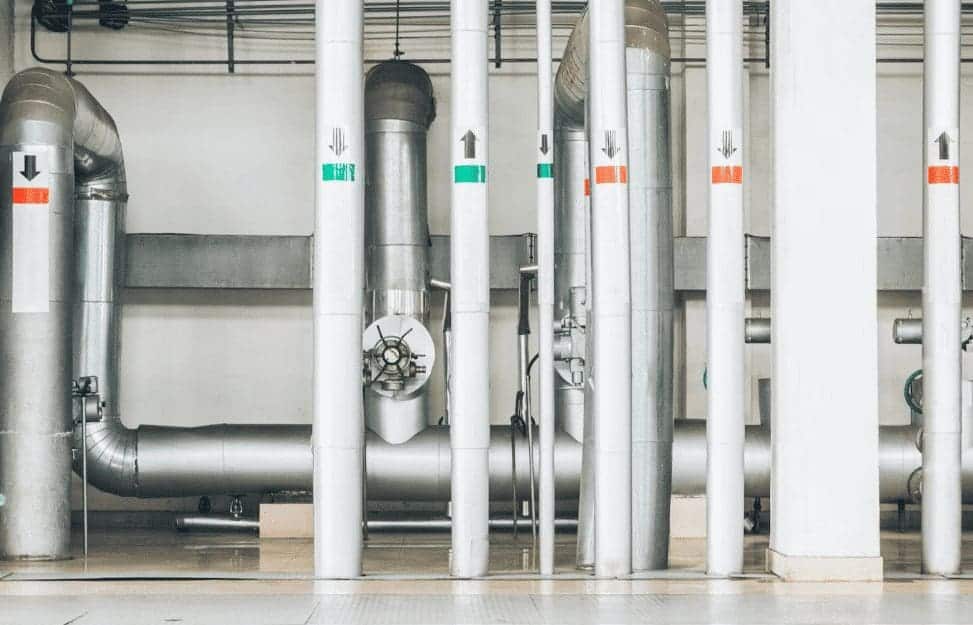Table of Contents
Central Heating In Pontypridd
Central heating systems have a variety of benefits for homeowners. First and foremost, they can help reduce utility bills throughout the year, granted that they are installed properly and are well-maintained. Their efficiency in saving energy might reach as high as 30% in some cases. Getting the latest A-rated central heating system can be a wise investment as they come with heating controls that make them more energy efficient. If you are looking for Central Heating Services in Pontypridd, then you’ve come to the right place. Central heating can help to prevent the development of certain health conditions such as bronchitis, hypothermia and asthma. It is also able to counteract condensation and growing mold. What is more, those units which are powered by gas are environmentally friendly and they can help reduce carbon dioxide emissions. You can rely on central heating to keep your house warm and cosy during the cold months of winter. We work with and can handle different types of central heating systems such as gas, oil or solar-powered units. Moreover, we can design and build reliable systems for your home. If you want peace of mind, then it is recommended that you hire a professional gas engineer. With regular central heating services, you can keep your system running smoothly and efficiently. This, as a result, can help cut down expenses when it comes to your energy bills. You will benefit from improved health due to the fact that central heating systems can be better than convection heating systems. With a central heating system in your home, you can beat certain conditions such as allergies or asthma.
Is regular central heating service important?
When you regularly have your central heating system serviced, you can prevent breakdowns and different problems. That is why it is recommended that you have your system checked before winter to ensure that it is running without any issues. Our gas engineer will check your system for any faults and faulty parts. He will inform you of what needs to be fixed or replaced. Regular servicing of your central heating system can detect if there are any gas or carbon dioxide leaks. If your system is not running efficiently, then it can cost more when it comes to running the system.
What is involved in central heating service?
When it comes to central heating service, there are several jobs involved. Let’s take a look at some of the most important central heating services:
Getting your heating started
You will need a central heating system fitted if you have a newly-built home. The parts needed for your system will depend on what kind of boiler you are using. Our heating engineer is able to do the various jobs involved such as installing a boiler, radiators, water storage tank, controls, expansion vessels and valves.
Replacement parts
Replacing a faulty component in your boiler can sometimes be the most cost-effective approach to a breakdown. Our professional heating engineer is capable of providing part replacement services to a very high standard.
Maintaining your central heating system
In order to keep your home warm and cosy, maintaining your central heating system is important. Our professional gas heat engineer is qualified to carry out maintenance services. A heating professional has the necessary technical knowledge and skills to deal with your central heating system. Your system will be inspected using the latest tools. The system will be checked for any broken parts or issues. Any broken parts will be fixed or replaced if necessary.
annual servicing
To ensure that your central heating is working as it should without breakdowns, annual service of your heating system is essential. A faulty heating system is both costly and can be a safety hazard. Carbon dioxide leak is not something to be taken lightly as it can be dangerous to your safety. With regular servicing, our heating professional will do his best to ensure that everything is running smoothly and safely. This will ensure your safety as well as prevent wasting energy.
How does the central heating system work?
Each of the four types of central heating systems operate differently. Most houses in the UK use the wet central heating system. It is important to know how this system works to understand what your system is capable of. A wet central heating system can consist of a heating appliance such as a combi boiler, which is connected to pipework and radiators to circulate heat in your home. Either air or water will be heated, depending on the system you are using. The heating process takes place in one location of your home or building. Almost all wet systems work by using two pipes. Hot water will be pumped to each radiator by using only one pipe. A second pipe is then used to collect the cooled water in order to return it back to the boiler to be reheated. The less common method of a single-pipe layout involves water being moved through each radiator. A process that will make it lose much of its temperature. The boiler burns fuel in order to ignite a flame which heats a copper pipe containing water. The most common ways used are burning gas or oil. The heat produced is transformed to the water within the pipe as the copper pipe increases in temperature. The heated water will be sent to a hot water storage tank or straight away to a water tap, depending on the boiler type you are using. In a storage tank system, a pump transports the hot water or the hot air from the boiler to the radiators by using pipes. With a combi boiler there is no need for a storage tank because combi boilers heat water on demand. The water which is circulating from your boiler to the radiators can warm the room mainly through convection. This process gradually increases the temperature of the room while it is heating the cooler air.
What are the types of central heating systems?
There are different types of central heating systems. However, the one commonly used in the UK is the wet central heating system.
Wet system
With the wet system, your boiler will first heat the water and then it will be pumped through a network of pipes. These pipes are connected to your radiators. To control the rate of the water flow and the amount of heat, each radiator will have valves. Wet systems, in the UK, are usually dual-purpose. They have two tasks: to heat a building and to supply hot water for taps. With a tankless system, your boiler will operate on demand when hot water is needed. Whereas a storage tank will need to be filled with hot water in advance.
Warm air system
Warm air systems can be found in some older homes. They are also called dry systems. They were popular during the 60s and 70s. However, they have since been replaced by wet systems. They can still be seen in commercial buildings. This dry system works when cold air is brought in from outside and heated by a central boiler. After this, it is circulated through the place by using air ducts and vents. To control the heat levels, each duct can be closed or opened. It must be mentioned that dry systems can only be installed while a house or a building is being built because the ducts are massive in size.
Storage heater system
An electric storage heater system stores heat overnight in firebricks. This heat can be released gradually into your house during the day time. The storage system can be cheaper because it mainly heats overnight and a little during the day. The storage system is made of individual storage heaters, but because it relies on a wiring system within your home in order to use off-peak electricity, it can be considered as a central heating system.
District heating system
A district heating system produces heat using a single centralised power source and then can distribute heat to several buildings in a certain area. This can be achieved by using insulated pipes. The district system can help save energy and as a result save you money. What is more, it can lower carbon emissions. Homes which are connected to the district system can benefit from having both heat and hot water delivered by using the pipework. These homes wouldn’t need to have a boiler or any other heating system maintenance fees. Only a small percentage of homes in the UK use this kind of system. However, they are growing in popularity so expect to come across them more often. Our Facebook Page.
FAQ’s
Which is the cheapest form of central heating?
Propane gas is considered to be one of the cheapest options to keep your home warm. What is more, it’s a very efficient way to heat a home, making it a perfect choice for people looking to cut their heating costs and save on their energy bills.
How do I know if I have central heating?
You can tell by checking if you have a furnace, it is typically located centrally in the home. Areas to check could be a utility closet, garage, attic or basement. If you have a heat pump, it would be located outside of the home.
Does central heat use gas or electricity?
Central heating can be powered by a variety of energy sources such as solid fuels (such as wood), water/steam, petroleum and other liquids, electricity, heat pumps, and natural gases. The most common forms of central heating are electricity and gas because they are the easiest to maintain.
What is the lifespan of a central heating system?
Generally speaking, most HVAC systems will last 15 to 25 years, but depending on the type of system and other contributing factors, that estimate can be highly variable.
What are the symptoms of a failing heating system?
- No heat
- Strange smells
- Thermostat indicators
- Strange sounds





